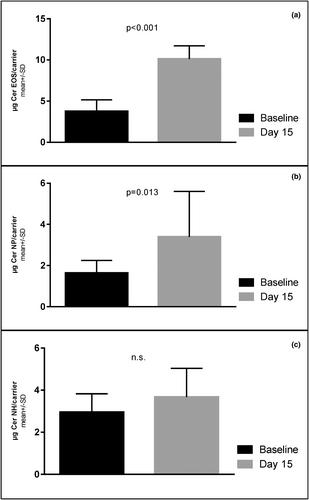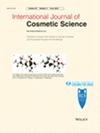Impact of multilamellar formulations on stratum corneum lipid organization and epidermal lipid barrier enhancement (Part II)
Abstract
Introduction
The integrity of the stratum corneum (SC) is crucial for the skin's barrier function, protecting against environmental stressors and minimizing transepidermal water loss. Advances in skincare formulations have introduced multilamellar systems designed to emulate the SC's lipid composition and organization. This study hypothesizes that the application of a multilamellar cream will significantly impact the SC's lipid content and lamellar structure, thereby enhancing the epidermal barrier.
Methods
A saturated phosphatidylcholine-based multilamellar cream was applied to a cohort of adult subjects with very dry skin. Electron microscopy was utilized to analyse the micro-morphology of the cream and its integration into the lipid-depleted SC. Lipid analysis was conducted to quantify changes in the intercellular lipid matrix.
Results
Transmission-electron microscopy (TEM) imaging demonstrated that the multilamellar cream possesses a structured arrangement comparable to the natural SC architecture. Short-term application revealed a time-dependent restoration of lipid bilayers, while a 14-day regimen showed a marked increase in lipid lamellae density and length within the SC. Lipid analysis indicated a significant increase in total lipid content, with notable enhancements in ceramide and free fatty acid levels, without altering cholesterol levels. Lipid ratio analysis further confirmed the rebalancing of the SC's lipid composition.
Discussion
The multilamellar cream selectively increased specific lipids critical for barrier function, suggesting an action mechanism that aligns with the skin's natural regulatory processes. This selective augmentation indicates the potential of the formulation to not only restore but also enhance the epidermal barrier, with the maintenance of physiological lipid ratios suggesting compatibility with intrinsic repair mechanisms.
Conclusion
The study confirms that a multilamellar cream can significantly improve the SC's lipid composition and structural integrity, indicating enhanced barrier function. They are pivotal for skincare professionals, dermatologists, and product developers, enriching the understanding of multilamellar creams' benefits and applications in improving epidermal barrier function.


 求助内容:
求助内容: 应助结果提醒方式:
应助结果提醒方式:


